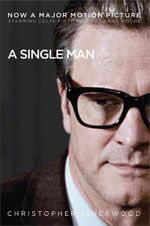
Randall Maggs’ gritty poetry collection Night Work: The Sawchuk Poems casts a semi-biographical gaze on the life and times of legendary and troubled NHL goalie Terry Sawchuk. Arguably the standard by which hockey goaltenders are still measured today, with many records that have only recently been broken, Sawchuk played most of his 21 seasons in the NHL, spanning the 1950s and 60s, with little of the protective equipment in which modern goalies gird themselves. He also played in an era where backup goalies weren’t customary. This foreshadows and explains a lot.
How did Maggs formulate the balance of history, fact and imaginative interpretation to come up with his fierce and wrenching version of the Terry Sawchuk story? As he explains in the closing acknowledgements:(Those listed gratefully include sports greats – players, officials and writers such as Johnny Bower, Carl Brewer, Ken Dryden, Ron Ellis, Trent Frayne, Dick Irvin, Red Storey and Stephen Brunt, as well as poetry greats Don McKay and Karen Solie.)
Maggs takes a varied approach to presenting Sawchuk the man, the figure and the legend, with different variations of dense but absorbing blank verse forms, and with a wide range of perspectives and colourful, often haunting voices. The tales, not just of action on the ice, but in the locker room, facing or avoiding the media, travelling, finding some quiet and solace on a frozen lake, run the gamut from rollicking and down to earth to dark and brooding to lyrical. Sensitively researched and curated photographs are touchstones for several of the poems and fragments in this collection, and are arresting all on their own. In the mid-1960s, Life Magazine had a makeup artist superimpose scars and stitches on Sawchuk’s face to illustrate all of the injuries he’d incurred over his career. That picture concludes the collection, and is a wrenching poem unto itself. The mounting inventory of Sawchuk’s mental and emotional suffering, including alcoholism and depression, is perhaps even longer than the physical injuries that either sparked or exacerbated his ongoing woes. But arching over it all and captured powerfully in Night Work: The Sawchuk Poems was the man’s unstinting determination to succeed and triumph and, in his way, transcend the harsh, grinding vocation he’d made his own and in the process, transcend time, even if only one game, one period or one play at a time. Talk’s over at the glass, the captainswaved away. The referee holds four fingers up
and folds his arms, four seconds he wants put back
on the clock. Son of a bitch, an old defender
sags against the boards. Still, imagine the power,
to kick time’s arse like that.
The following is a dramatic short film based on Night Work: The Sawchuk Poems.
The following is an audio excerpt, courtesy of Brick Books, of Randall Maggs reading the poem “No Country for Old Men” from this fine collection.



